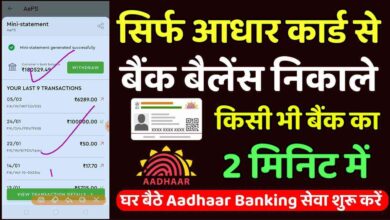Banking & Finance
How to Consolidate Debt in 2024

Consolidating debt in 2024 can simplify your financial situation and potentially save you money by reducing interest rates and making payments more manageable. Here’s how to approach debt consolidation in the current financial environment:
1. Debt Consolidation Loan
- A debt consolidation loan is a personal loan that you can use to pay off multiple high-interest debts. Afterward, you’ll have a single monthly payment at a lower interest rate. In 2024, many online lenders, banks, and credit unions offer competitive rates based on your credit score.
- Pros: Potentially lower interest rates, fixed payments.
- Cons: You need a good credit score to qualify for the best rates.
2. Balance Transfer Credit Card
- A balance transfer credit card allows you to transfer existing credit card balances to a new card with a low or 0% introductory interest rate. This is ideal if you can pay off the balance within the promotional period (often 12-18 months).
- Pros: No interest during the promotional period.
- Cons: Requires good credit, and high-interest rates may apply once the promotion ends.
3. Home Equity Loan or HELOC
- If you own a home, a home equity loan or home equity line of credit (HELOC) can be used to consolidate debt. These loans are secured by your home and usually offer lower interest rates than personal loans.
- Pros: Lower interest rates, potential tax benefits.
- Cons: Your home serves as collateral, so there’s a risk of foreclosure if you can’t make payments.
4. Debt Management Plan (DMP)
- A Debt Management Plan is a service offered by credit counseling agencies. The agency negotiates with your creditors to reduce interest rates and organize one monthly payment. This option is ideal for those struggling with high credit card debt.
- Pros: Credit counseling can help lower interest rates without new loans.
- Cons: Fees may apply, and it can take 3-5 years to pay off the debt.
5. Cash-Out Refinance
- A cash-out refinance allows you to refinance your mortgage for more than you owe, using the extra cash to pay off debt. This method leverages your home’s equity.
- Pros: Lower interest rates than most personal loans or credit cards.
- Cons: You risk your home if you can’t repay the mortgage.
6. Debt Settlement
- In debt settlement, you negotiate with creditors to pay off your debt for less than the full balance. This option can significantly reduce your debt but may negatively impact your credit score.
- Pros: Can reduce overall debt.
- Cons: Damages credit score, and creditors aren’t obligated to accept your offer.
Factors to Consider in 2024:
- Interest Rates: In 2024, interest rates are fluctuating. Be sure to compare offers from multiple lenders to get the best rate.
- Credit Score: Your credit score plays a major role in the terms of any consolidation loan. The higher your score, the better the rates you’ll receive.
- Fees: Watch out for origination fees, balance transfer fees, and other costs that might come with consolidation loans or credit cards.
Best Practices:
- Check Credit Reports: Ensure your credit report is accurate, as this will impact your loan or credit card terms.
- Stick to a Budget: After consolidating, stick to a budget to avoid accumulating new debt.
- Shop Around: Use comparison websites to find the best loan or credit card options.
By following these steps, you can effectively manage your debt and work toward financial freedom in 2024.


